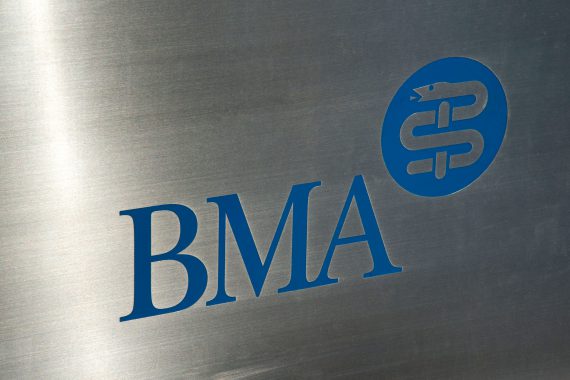BMA passes vote to reject ‘power grab’ Health and Care Bill

The BMA council has passed a resolution calling for MPs to reject the new Health and Care Bill, arguing it is ‘not the right time’ to be bringing in widespread legal reforms while the NHS deals with the Covid-19 pandemic.
The bill, which includes powers that will see CCGs abolished and replaced with new integrated care systems (ICSs), is due to have its second reading in Parliament today.
The BMA said the bill also fails to address chronic workforce shortages or to protect the NHS from further outsourcing and encroachment of large corporate companies in healthcare.
It is calling for significant amendments to the proposed legislation – including a health secretary ‘power grab’ – or else the BMA cannot support it.
These improvements should include embedding clinical leadership throughout ICSs, ensuring there are protections against privatisation, ensuring political responsibility for staffing levels and addressing the additional powers the bill would give to the health secretary.
It comes as health minister Jo Churchill has said the bill will ‘do away with unnecessary bureaucracy’ for GPs, in an exclusive op-ed for Pulse.
But Labour said last night that it would be opposing the Bill on its second reading, arguing that the current backlog of NHS treatment means it is not the right time for a reorganisation.
Dr David Wrigley, deputy chair of BMA council, said: ‘This is not the right time to be making such widespread changes to our health service.
‘What’s more the bill addresses none of the problems the NHS is currently facing – too few resources, too little funding, a crisis in social care and a huge shortage of staff. It does not address the problem of a workforce that is exhausted and depleted by the pandemic and is now facing yet another wave.’
Under the bill, two statutory bodies – an integrated care board and an integrated care partnership – will be formed, with only one GP being required on the board, according to recent NHS England guidance.
Dr Wrigley said the the bill in its current form ‘undercuts truly representative clinical leadership’.
He said: ‘The BMA has consistently called for meaningful clinical leadership, engagement and representation at every level of integrated care systems, including from primary and secondary care as well as public health doctors to ensure the right voices are heard when it comes to commissioning decisions, but this has not been adequately addressed in the legislation.’
The threat of private health providers having a formal seat on new decision making boards, and ‘wielding influence over commissioning decisions’ must also be ‘ruled out’, he said.
He added: ‘What should also have been ruled out is extending the powers of the health secretary.
‘Of course, the health secretary should be accountable for the NHS, but it would be totally wrong for Government to have the power to abolish arm’s length bodies without due scrutiny, approve or reject ICS chairs, or interfere with local decisions – all of which risk political interference for political gain, and do not have the interests of the NHS, or its patients, at heart.’
The bill would bring an end the controversial section 75 of the Health and Social Care Act 2012 – which mandated for all NHS contracts to be put out to competitive tender.
But while the BMA supports the removal of enforced competition, Dr Wrigley said ‘the most effective way of doing that is to make the NHS the default option for NHS contracts and to only tender competitively where this is not possible’.
He added: ‘This is also vital to avoid the awarding of contracts without scrutiny to private providers at huge expense to the taxpayer, as was seen with the procurement of PPE and Test and Trace during the pandemic.’
The Health and Care Bill 2021-22 proposals, first published in a white paper in February, will see ICSs placed on a statutory footing so they become responsible for commissioning and bringing together local NHS and local government services, such as those covering social care and mental health.
The BMA has previously warned the proposals would bring a ‘significant change to the working lives of GPs’ and has highlighted concerns about GPS losing out on locally enhanced service contracts if primary care budgets are pooled within ICSs.









